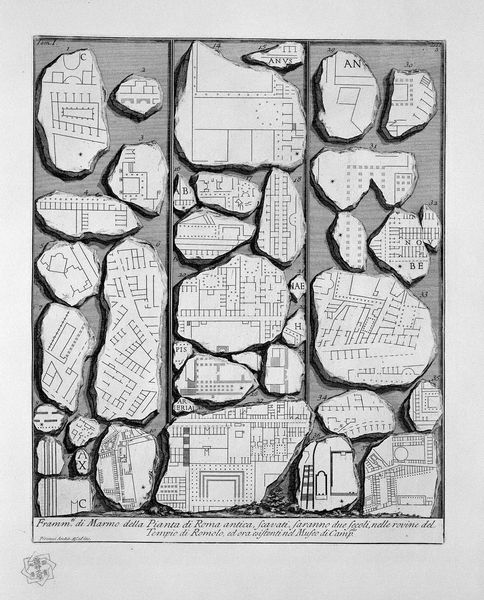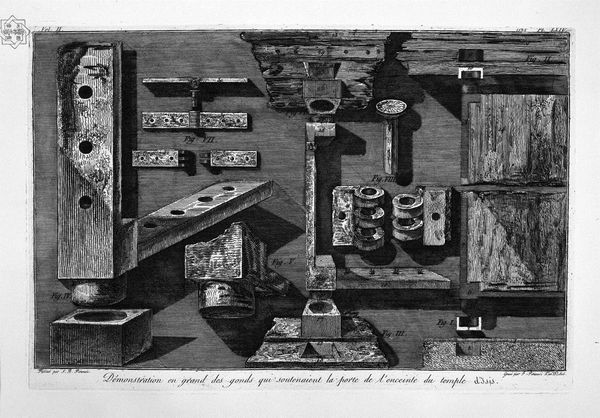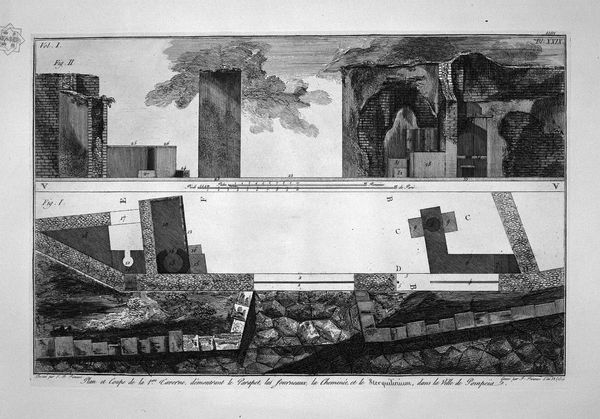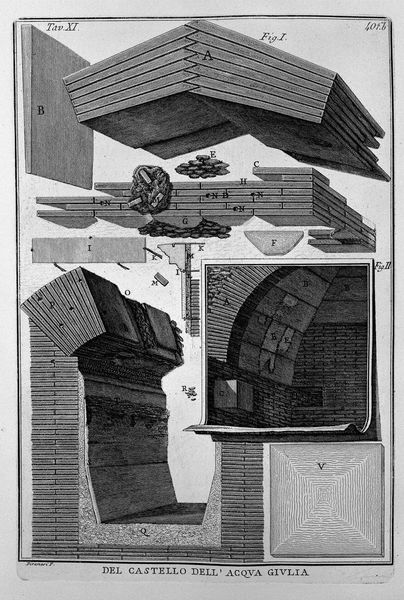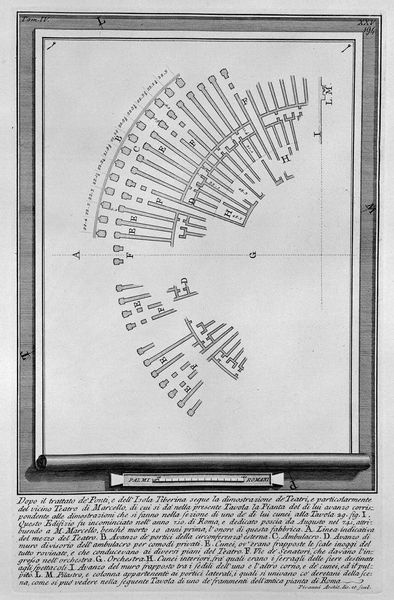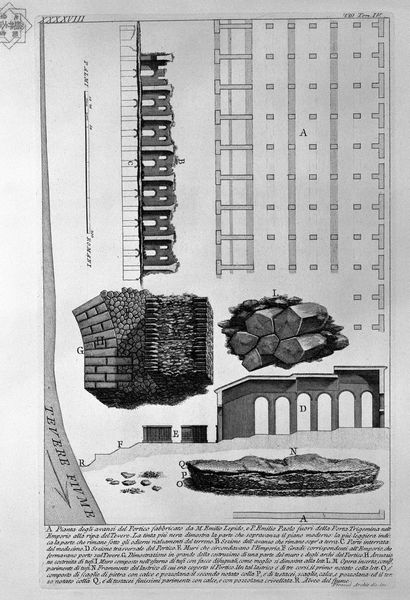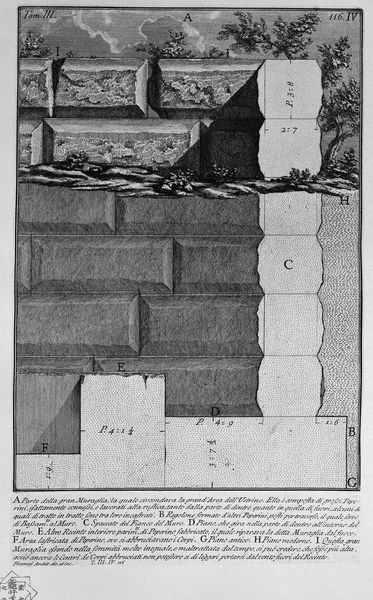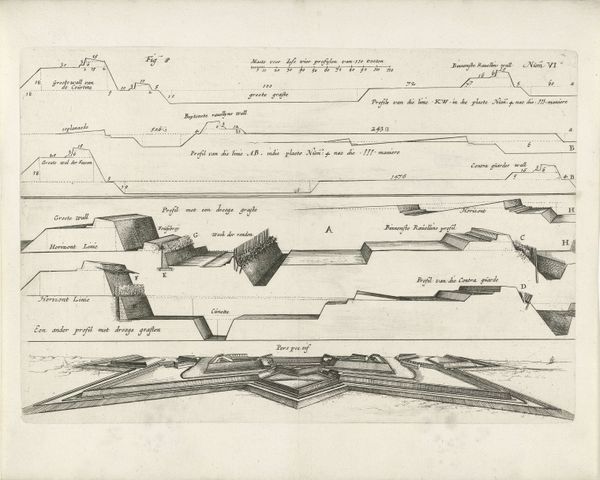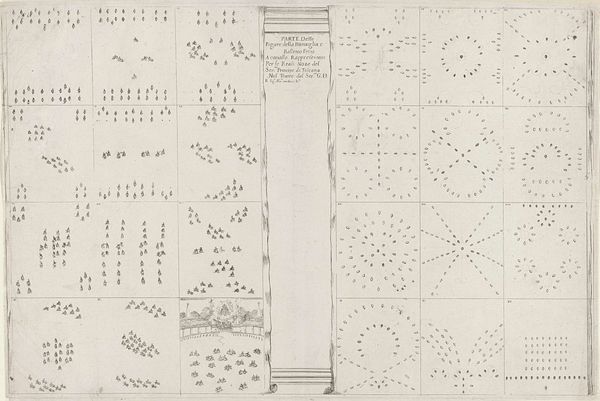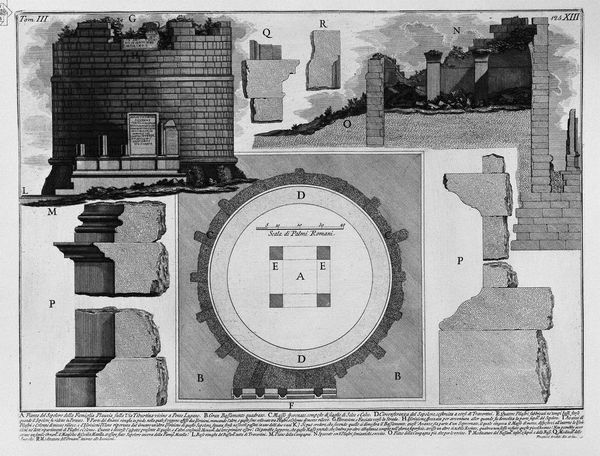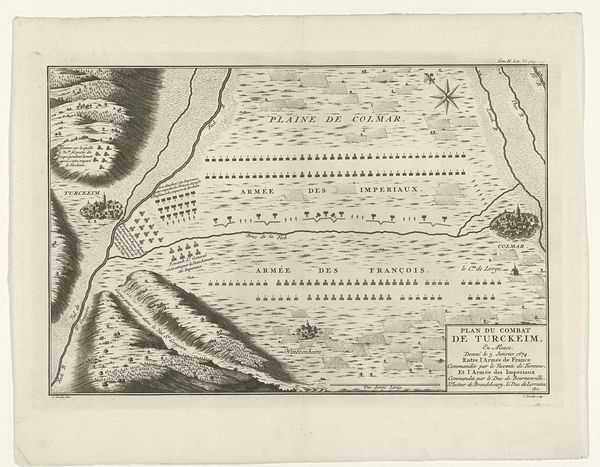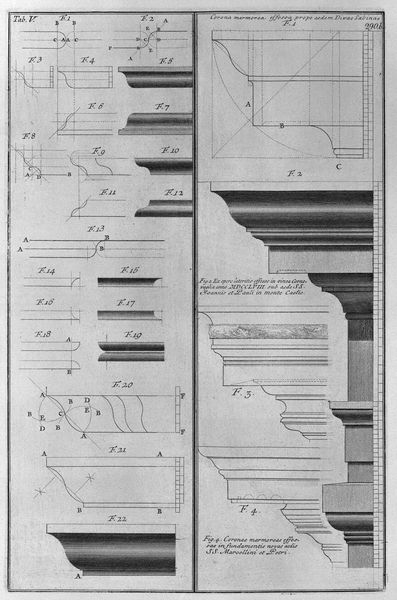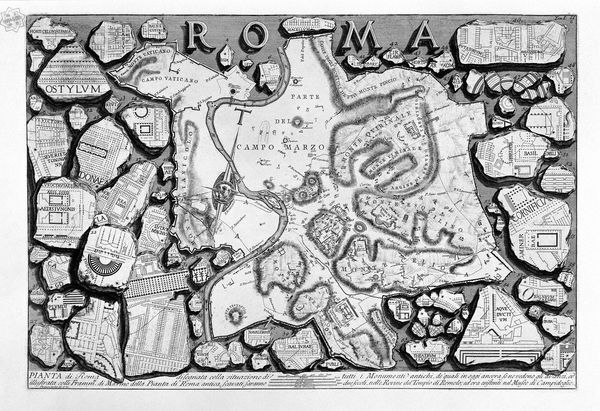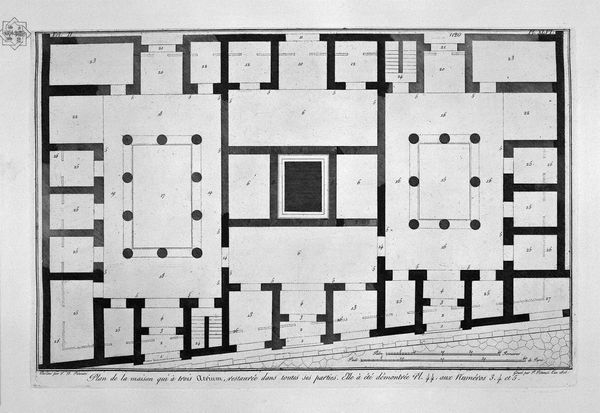
The Roman antiquities, t. 1, Plate V. Map of ancient Rome and Forma Urbis. 1756
0:00
0:00
drawing, print, etching, engraving
#
drawing
#
neoclacissism
# print
#
etching
#
11_renaissance
#
linocut print
#
geometric
#
cityscape
#
history-painting
#
academic-art
#
engraving
Copyright: Public domain
This is Giovanni Battista Piranesi’s etching, "Map of Ancient Rome and Forma Urbis," created in the 18th century. The print presents itself as a collection of marble fragments, each carefully shaded to give a three-dimensional quality. Notice how the composition leads our eyes to jump between pieces of stone, each marked with architectural plans of ancient Rome. Piranesi uses shadow and the texture of the stone to blur the boundary between meticulous documentation and romantic ruin. This technique serves not just to depict the city but to evoke its fragmented history. The visual language of ruins destabilizes the notion of a complete, recoverable past. Piranesi’s print suggests that Rome’s grandeur can only be understood through a lens of incompleteness, challenging viewers to piece together a history from scattered remnants. This fragmentation becomes a powerful statement on the nature of history itself.
Comments
No comments
Be the first to comment and join the conversation on the ultimate creative platform.
